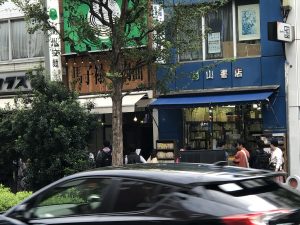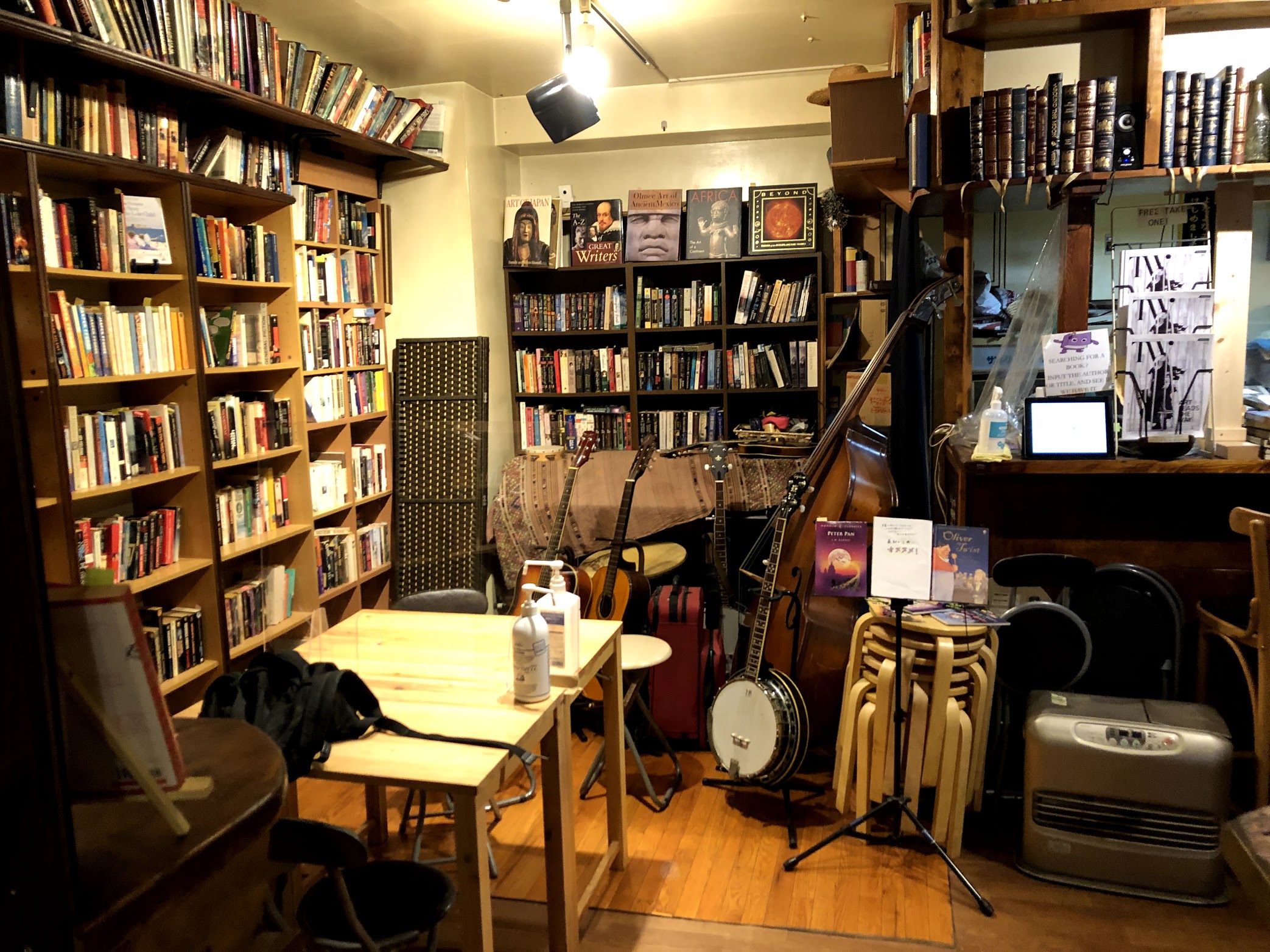Jul 18, 2021
Let’s Tour: Jimbocho Books District in Tokyo
If you’ve been hanging around Tokyo (or following our Let’s Tour Tokyo series) long enough, you’ll have no doubt found there’s a pattern with many neighborhoods in the central part of the city in that they sometimes specialize in some form of commerce or government. Harajuku and Omotesando are devoted to fashion, Kappabashi is famous for its cooking and kitchen supply houses, Tsukiji is home to some of the best sushi stands and restaurants; even if the wholesale market that started it all has moved 2kms east, and Tokyo wouldn’t be Tokyo without Akihabara and all things powered by electricity and Japanese pop-culture. Jimbocho Book Street keeps in line with a new rule I’ve dubbed, “Japan Rule 84: There’s a neighborhood for everything if you search hard enough.”
A Short Historical Record

The area was primarily residential until 1913, when a large fire razed the entire area. At that point, a local scholar and university professor Iwanami Shigeo opened up Iwanami Shoten, a used bookstore and publishing house he used to disseminate his own works along with those he thought to be intellectually valuable. Soon, it became a place for intellectuals and students to swap ideas and debate each other over tea and snacks, as other bookstores and cafes began opening up over time. During the postwar period, these publishing houses were pressed into service as every aspect of Japanese life was rewritten and reformatted. Eventually, the area became the home of large publishers like Shogakukan and the location of the head store for chains like Sanseido. Even still, the indie bookshops and cafes remain the heart and soul of the neighborhood.
My Partial Loss Is Your Gain

It was searching for a photo book of old streetcars and trams in Japan that led me to spend a day in Jimbocho the first time years ago. I never found that particular book, but I found a wealth of small first and secondhand booksellers specializing in any and everything you can imagine. Of course, the vast majority of publications are in Japanese, but you can be sure to find that needle-in-a-haystack out-of-print English language book if you comb through the shops enough as well. Not just books either, but almost anything printed on paper or associated with literature can be found in the narrow streets between Yasukuni-Dori and Kanda-Suzuran-Dori. Also, remember: there’s nothing like curling up with a good read over a hot cuppa. Jimbocho is also host to many coffeehouses and tea rooms because of this, so even if you don’t spend time searching for a page-turner, you can at least drop into a cozy spot with your own time waster in hand.
Where to go
Here are a few shops I can recommend to get you started:
Sanseido Books
Although now one of the largest bookstore chains in Japan, this location is the one that started it all.
1-1, Kandajimbocho, Chiyoda, Tokyo
https://www.books-sanseido.co.jp
Tokyodo
One of the original booksellers in this location, Tokyodo is known for its themed floors dealing with the past, present, and future of humanity in terms of learning and thinking. The top floor has a small space where novelists, writers, and authors come and discuss their manuscripts regularly. It also happens to have one of the best coffee shops in the area on the first floor in the form of Paperback Cafe.
1-17 Kandajimbocho, Chiyoda, Tokyo
Kitazawa Shoten
Whenever I need a foreign book (read: academic book or novel written in English) that I can’t seem to find anywhere else in town, or even sometimes can’t track down online, I tend to head over to Kitazawa Shoten and peruse their stacks or if nothing else, ask the staff if they can help me get my hands on it. After over 100 years of collecting rare and second-hand foreign books, they definitely know their stuff.
2-5 Kandajimbocho, Chiyoda, Tokyo
Access
The whole neighborhood is within a 5-minute walk of Jimbocho station, served by the Hanzomon (H), Mita (I), and Shinjuku (S) lines. Also, be sure to check Jinbou.info to gather more information on other bookshops and events.
Photos — By Jason L. Gatewood
Jason Gatewood subscriber
Our Tokyo based collaborator is a tech nerd, Japanophile, train nut, and a veritable fountain of information on Japan. His current goal is to watch Evangelion and actually "get it", sing every permutation of "Hotel California" at any karaoke gathering, ride every bullet train line, and sample all varieties of ramen throughout Japan. Catch more of his musings at · http://jlgatewood.com
Search
Japan Home Search
Lease Japan
Tokyo:
+81-(0)3-5449-6061
Nagoya:
+81-(0)52-973-3957
Kobe (Osaka):
+81-(0)78-325-3650


About the author